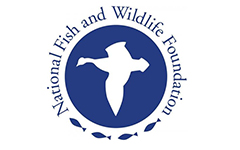Washington, DC — The Sustainable Forestry Initiative Inc. (SFI) is pleased to announce a grant award from the National Fish and Wildlife Foundation (NFWF) designed to engage landowners in West Virginia on forest management that benefits bird species. The project will focus on three at-risk bird species: the golden-winged warbler, the cerulean warbler, and the wood thrush. This project highlights SFI’s commitment to collaborating on sustainability solutions and elevating the conservation benefits of SFI‑certified lands.
“West Virginia is blessed with beautiful forests that offer limitless opportunities to discover and appreciate wildlife. The Mountain State is home to unique bird species, and we must care for the areas they inhabit,” says U.S. Senator Joe Manchin, (D-W.Va). “I am thrilled the Sustainable Forestry Initiative is working to restore wildlife habitats in our state, and I will continue to advocate for funding and resources to ensure West Virginia forests are protected for use by generations to come.”
“Creating healthy forest habitats in West Virginia helps our communities, our businesses, and our environment. I appreciate the Sustainable Forestry Initiative and their partners for taking a collaborative approach with landowners to enhance the state’s wildlife for current and future generations,” says U.S. Senator Shelley Moore Capito (R-W.Va.).
“This project implements the habitat management activities developed through the Appalachian Mountain Joint Venture partnership that brings together state, federal, and private partners to conserve birds. Working with partners such as SFI and Weyerhaeuser means we can achieve habitat conditions at the scale needed to reverse the steep declines of these eastern forest breeding birds,” says Emily Jo Williams, American Bird Conservancy’s South East Region Vice President.
“SFI and their partners have developed an innovative approach to scaling up conservation in the region by leveraging SFI’s widely-adopted certification standards to specifically promote conservation of rare or declining species on private forestlands,” says Amanda Bassow, Director of the Northeast Regional Office for the National Fish and Wildlife Foundation. “NFWF, along with our funders at the U.S. Fish and Wildlife Service and U.S. Forest Service, is thrilled to be able to support this important work.”
The grant supports using sustainable forest management to support these at-risk songbirds by engaging forest owners to enhance the birds’ forest habitats. The West Virginia test sites, covering at least 15,000 acres of forests in Central Appalachia, boast some of the most biologically diverse, temperate deciduous forests in the United States. Birds such as golden-winged warblers, cerulean warblers, and wood thrushes require diverse forest habitats that are found in the Central Appalachian Mountains.
The project is focused in three West Virginia counties and will directly involve multiple partners, including the American Bird Conservancy, West Virginia University, West Virginia Division of Natural Resources, SFI‑certified company Weyerhaeuser, and family landowners. The project centers on the management of both public and private forestlands to create mixed-age forest landscapes to support a diversity of bird and other wildlife species.
The inclusion of a large private landowner like Weyerhaeuser is vital to provide the necessary scale for an effective study area, therefore benefitting all involved parties. “Weyerhaeuser is looking forward to this collaborative effort to better understand the relationships between these at-risk bird species and our working forests,” says Henning Stabins, a wildlife biologist with Weyerhaeuser.
“Our approach to planning and implementation will help landowners meet landscape biodiversity requirements under SFI certification,” says Paul Trianosky, Chief Conservation Officer at SFI. “This project builds on SFI’s scale, convening experience, and commitment to continual improvement. It will reveal best practices that could inform management actions across SFI-certified forestlands throughout the U.S. and Canada.”
ABOUT SFI
The Sustainable Forestry Initiative® (SFI) advances sustainability through forest-focused collaborations. We are an independent, nonprofit organization that leverages four interconnected pillars of work: standards, conservation, community, and education. SFI works with the forest sector, conservation groups, academics, researchers, brand owners, resource professionals, landowners, educators, local communities, Indigenous Peoples, and governments. Collaborating with our network, we leverage SFI-certified forests and products as powerful tools to help solve sustainability challenges such as climate action, conservation of biodiversity, education of future generations, and sustainable economic development.
MEDIA CONTACT
Christine Leduc
VP, Communications and Government Relations
Sustainable Forestry Initiative
613-706-1114
media@forests.org
Conservation:
Leonardo (Leo) Viana
VP, Conservation Collaboration
Leonardo.Viana@forests.org
202-719-1390

About National Fish and Wildlife Foundation
Chartered by Congress in 1984, the National Fish and Wildlife Foundation (NFWF) protects and restores the nation’s fish, wildlife, plants and habitats. Working with federal, corporate and individual partners, NFWF has funded more than 5,000 organizations and generated a total conservation impact of $6.1 billion. Learn more at nfwf.org. (Read the NFWF grant announcement, learn more about SFI’s NFWF grant, and watch a short video about the Central Appalachia Habitat Stewardship Program.)
